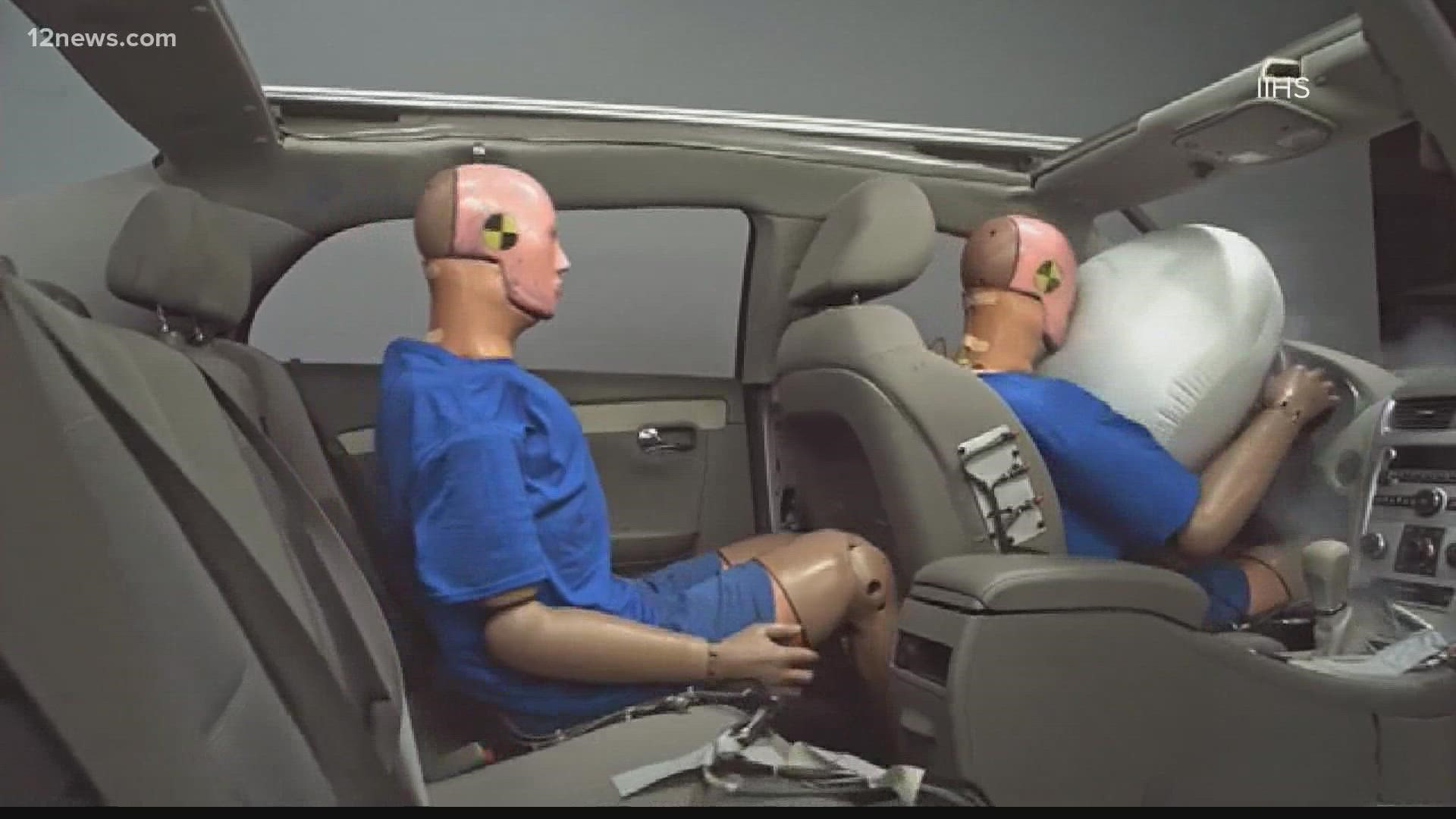ARIZONA, USA — Get in the car. Check your mirrors. Put on your seat belt.
In the 30 years since Arizona adopted a secondary seat belt law, it has become second nature for most drivers to buckle up before heading to their destination.
Lately, however, it has become increasingly less common for back seat passengers to wear their seat belts; something seat belt advocates and rideshare companies want to change.
The numbers
According to the National Highway Traffic Safety Administration, 47% of the 22,215 passenger vehicle occupants that died in 2019 did not wear a seat belt.
The NHTSA believes 2,549 lives could have been saved in 2017 had occupants buckled up that year.
Of those riding in the back seat, Advocates for Highway and Auto Safety says passengers are more than twice as likely to die if they are unbuckled. An Insurance Institute for Highway Safety survey found that only 71% of passengers ages 18 and older would buckle up in the back seat, as opposed to 91% who would buckle up in the front seat.
“I think it's the thought that somebody else is taking care of it [driving],” said Tara Gill, the Senior Director of Advocacy and state legislation for Advocates for Highway and Auto Safety. “They think don't have to buckle up, but they absolutely do. It's critical, not just for their own safety, but for the safety of the driver as well.”
Primary vs. secondary laws
All but one state in the U.S. have either primary or secondary seat belt laws. Primary seat belt laws allow police to ticket passengers for not wearing seat belts, while secondary laws mean an officer must observe another violation before pulling a vehicle over.
Advocates for Highway and Auto Safety said primary seat belt laws show evidence of being more effective in getting drivers and passengers to buckle up.
“Studies, research and experience have shown that states with primary enforcement laws are much more effective in getting people to buckle up and that seatbelt use is higher in the primary states with primary enforcement laws compared to those with secondary enforcement laws,” Gill said.
Arizona adopted secondary seat belt laws in January 1991. Arizona Department of Public Safety reported that in states where secondary laws are in place, 15% fewer occupants use their seat belts.
Rideshare woes
Rideshare companies, such as Uber, have been working to get their passengers to buckle up. In markets with secondary laws, rideshare companies are less likely to cancel a ride if a passenger doesn’t buckle up, unless the driver decides the ride is unsafe.
Canceling a ride could have a negative financial impact on drivers if the rider decides to hit the driver with negative reviews.
To help address the issue, Uber released a new feature on its app that reminds drivers and passengers to buckle up.
Once the ride is initiated, an alert comes up on both phones, reminding passengers to buckle up.
“The hope is that by sending this message at exactly the right time, you start to change people's behavior and make sure that they buckle up,” said Kristin Smith, the head of Road Safety Police with Uber.
Smith says the hope is behaviors will change beyond just when the client is using Uber.
“Every time they're in a car, whether it's their own car or they're on an Uber trip, in the front seat or the back seat, they're always buckled up,” Smith said.
Up to Speed
Catch up on the latest news and stories on the 12 News YouTube channel. Subscribe today.

